NATIONAL HISPANIC/LATINX HERITAGE MONTH
EL MES DE LA HERENCIA HISPANA
National Hispanic/Latinx Heritage Month/El Mes Nacional de la Herencia Hispana provides a fitting moment to recognize Latinx contributions to our school, university and nation. But it also offers the opportunity to move beyond easy expressions of appreciation and into the more difficult work of critically evaluating our school and university contributions to Latinx success and wellbeing. As you will see in the stories featured below, our Latinx faculty, staff and students play an irreplaceable role in the school’s research and teaching missions, while also assuming much of the often-invisible labor of empowering the Latinx and underrepresented minority leaders of tomorrow. With this feature, we make their contributions visible—and we celebrate them. But, as one of our First-Generation First Quarter Challenge Latina student leaders recently told me: la lucha sigue. The struggle continues. And so, in commemoration of National Hispanic/Latinx Heritage Month 2021, let us publicly recommit to the ongoing work of making our school and university a place where social justice is both taught and practiced—where all faculty, staff and students can truly thrive.
Anita Casavantes Bradford
Associate Dean, Social Sciences Faculty Development and Diversity & Associate Professor,
Chicano/Latino Studies and History
While we strive to provide a school-wide scope of people and programs serving the
Latinx community, this is but a sampling. If someone or something should be featured
here but isn’t, reach out: communications@socsci.uci.edu.
And if you'd like to learn how you can support work like this happening yearround
in the social sciences, contact us today!
People
Programs
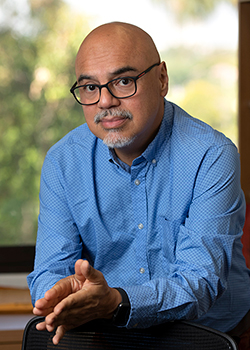
Héctor Tobar
Associate Professor, Chicano/Latino Studies and Literary Journalism
Latino people from all 50 states shape American culture and politics, but despite their diversity, they are too often viewed as belonging to a single category. That diversity appears across the U.S.: In New Mexico, where hispanos have deep connections to Spanish culture; in South Texas, where some Mexican-Americans express disdain for the country just a few miles south; in Miami, where cubanos differentiate themselves from Hispanics; and in New York City, where Puerto Rican immigrants have been linked with with the local Black community.
This Hispanic Heritage Month, Héctor Tobar, an associate professor of literary journalism and Chicano/Latino studies at UCI, joins the UCI Podcast to discuss the origins of the term “Latino,” the various Latinx cultures he encountered during a road trip across America for a story he published in Harper’s Magazine, and how the lives of all Latinx people are influenced by U.S. imperialism.
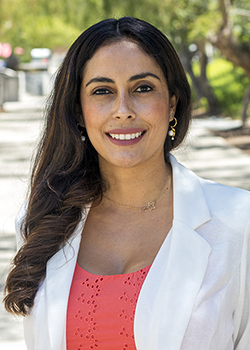
Glenda Flores
Associate Professor, Chicano/Latino Studies
Chicano/Latino studies associate professor Glenda Marisol Flores knows a thing or two about Latina educators. She’s the author of Latina Teachers: Creating Careers and Guarding Culture, the award-winning book in which she examines the role Latina educators play in promoting educational success and cultural identity for their Latinx students, often through practices that challenge norms about culture’s place in the teaching profession.
But Flores doesn’t just study Latina educators—she is one. She joined the UCI Department of Chicano/Latino Studies in 2012 and quickly made a name for herself as a top teacher in social sciences. She’s earned the school’s Outstanding Teaching Recognition for five different courses on topics ranging from labor and intersections in education to qualitative methods, theoretical foundations in Chicano studies, and Chicanas in the U.S. She helped launch UCI’s First Gen program for students—like her—who are the first in their family to go to college. And in 2019, she was named the Social Sciences Dean’s Honoree for Celebration of Teaching, putting her in like company with 20 of UCI’s most outstanding instructors across campus.
Now, she's turned her attention to the undervalued yet critical role Latina physicians play in U.S. healthcare. Latina physicians—who comprise less than 2 percent of the total population of medical doctors in the U.S.—often play an outsize role as translators and caregivers compared with Latino and non-Latinx peers. These unpaid gendered and cultural taxes can be silent career killers and cause for burnout, says Flores, and COVID-19 has exacerbated the problem.
Latina physicians deliver culturally competent care that’s indispensable to the communities
they serve, yet these skills are routinely uncompensated, tokenized and taken for
granted,
she says. Their work beyond the traditional doctor-patient relationship has been a critical
lifeline for their pandemic patients as Latina physicians have served as cultural
support systems when families aren’t allowed to be physically present with their sick
loved ones.
The resulting mental, physical and career exhaustion, and possible remedies, are topics Flores explored in two recently published pieces appearing in the journals Contexts and Gender & Society, the latter co-authored with Maricela Bañuelos, UCI sociology and Chicano/Latino studies emphasis graduate student.
We need to recognize the bilingual and cultural abilities that prime Latinas for uncompensated
work while also being more cognizant of biases we, as patients and peers, have for
people we perceive to be in positions of power,
she says. And we need to make sure students from undergrad on up understand sociocultural biases
that are ingrained in systems and how, through mentorship, we can work together to
address and fix them.
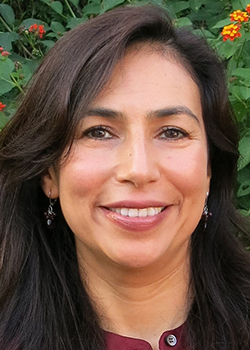
Belinda Campos
Professor and Chair, Chicano/Latino Studies
Relationships can bring happiness and protect health. It's now well established that high quality relationships are linked with better health and longer life, whereas poor quality relationships or a lack of relationships is as risky to health as cigarette smoking. What's less understood, though, is how people arrive at high quality relationships that bring happiness and protect health.
Belinda Campos, Chicano/Latino studies professor and chair, studies factors and processes that characterize high quality relationships, including positive emotions and their expressive displays. A key question she seeks to answer is whether sociocultural contexts that emphasize prioritizing others before the personal desires of the self-shape relationships in ways that benefit psychological and physical health.
Her research—done in the Culture, Relationships and Health Lab here at UCI—measures and observes subjective experience, behavior, and physiology, specifically the levels of stress hormones circulating in our bodies and how our heart responds to social situations. She's found that sociocultural contexts that emphasize prioritizing others before the self, such as is commonly done in Latinx and East Asian cultures, can be beneficial for relationships and protective of health. Among Latinos, there are Spanish language words that describe how social relationship should be—debemos de convivir, we should have a certain amount of togetherness—and it turns out, that sociocultural contexts that have these ideals are protective of health.
I’m fascinated by the ways people think, feel, and behave. That’s why I wanted to
become a psychological scientist
she says. I also grew up recognizing that some of the cultural ideals and norms that my family
regarded as the way the world should be, were distinct and often devalued. 'You need
to be more separate from your family' was something I heard often, especially in college
and after—or the unique features weren’t represented at all in the classes I was taking.
Her own lived experience told her that important knowledge was missing, and it needed to be better understood.
People might be right that I needed to be more separated from my family, but they
might also be very wrong. And as it turns out, these ways of doing relationships have
a lot of things right. And now it’s my privilege to shine a light on these ways of
doing relationships that are really important—to the people living these cultural
ideals that should be celebrated as sources of strength and resilience, and to the
broader U.S. culture that prioritizes the personal desires of the self-more than ever
before. Plus, what we if we all see in this work ways to be happier and healthier?
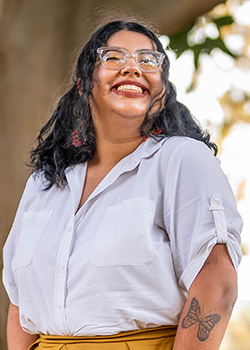
Melissa Molina
Undergraduate, Chicano/Latino Studies, Political Science and Education Science
UCI undergraduate Melissa Molina has not one, not two, but three majors. The senior is studying political science, Chicano/Latino studies, and education science - all while holding down two jobs and pursuing award-winning research. (In June, she won first place in the UCI School of Education’s 2021 Undergraduate Research Symposium.) As if all this wasn’t enough, she was a regional organizer for United Students Against Sweatshops and is in the process of hosting her own K-UCI radio show focused on neo soul music.
Latinx Heritage Month, as I prefer to call it, calls on us to critically think about
why we only choose to celebrate Latinx communities during a certain period of time,
and who is being centered at these celebrations. I hope that we can use this time
of celebration to also honor the Black, Indigenous, queer, and trans Latinx folks
who are always erased from these narratives, but continue to resist colonialism and
other systems of oppression today and always,
she says. Disrupting these narratives requires us to sit with the discomfort we may feel through
this critical thinking to think about how we are best showing up for these historically
marginalized groups even within the Latinx community. I hope to continue learning
and unlearning during Latinx Heritage Month and all throughout the year.
Read more about her UCI and advocacy experience and how the pandemic provided her a new perspective:
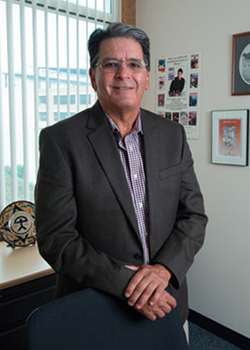
Leo Chavez
Distinguished Professor and Chair, Anthropology
Leo Chavez, anthropology chair and Distinguished Professor, has been a member of the UCI anthropology faculty since 1987. His research on transnational migration, particularly among Latinx communities, is the focus of four books, including The Latino Threat: Constructing Immigrants, Citizens and the Nation, which earned the American Anthropological Association’s 2009 Latina and Latino Book Prize. He’s authored more than 100 academic articles, produced two films, and penned numerous op-eds on the uphill battle undocumented immigrants face in American society with status affecting everything from physical and mental health to access to education and housing. His work has helped debunk stereotypes of the Latinx threat narrative echoed by politicians, pundits and journalists for which he consistently provides expert commentary.
Many of the stereotypes about Latinx people have existed since the 1800s. Today, these
misrepresentations are everywhere in the media and in political rhetoric,
he says. It is important to recognize that the targets of anti-immigrant and anti-Latino rhetoric
can suffer real emotional and psychological harm. Such rhetoric perpetuates a view
of them as outsiders and perpetually foreign.
His latest work, published in the journal Aztlán, illuminates the inaccuracies and emotional fallout of anti-immigrant and anti-Latinx
political rhetoric. Co-authors include UCI colleagues Belinda Campos, Chicano/Latino
studies professor and chair, Karina Corona, ’19 psychology and social behavior Ph.D.
and Pomona College visiting assistant professor, and Daina Sanchez ’18 anthropology
Ph.D. and UCSB assistant professor. He's also author of Latina Fertility, White Demographic Decline, and Immigration Reform,
a chapter in a soon-to-be published book, A Field Guide to White Supremacy, edited by Kathleen Belew and Ramon Gutierrez (University of California Press).
Most recently, Chavez was named the recipient of the Distinguished Career Award, given by the Association of Latina and Latino Anthropologists. The biannual prize recognizes a senior anthropologist who has made outstanding contributions by way of research, teaching, service and public engagement efforts that enhance understanding of Latinx lives and communities in the U.S.
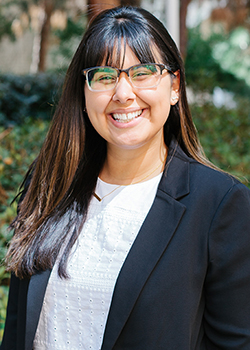
Karissa Sorenson
Director, Social Sciences Academic Resource Center (SSARC)
For Karissa Sorenson, director of the UCI Social Sciences Academic Resource Center, a college education represents generations of sacrifice dating back to her strong grandmothers. Both single moms - one from Cuba who finished high school and one from Mexico who finished first grade - raised their children to value education and the opportunities it affords. Her parents, in turn, both graduated high school. And when Karissa was born, they made many sacrifices to put her and her siblings through private school – a move that opened previously closed doors and possibilities.
Their sacrifices set me on a track that made college possible,
she says. She went on to earn both a bachelor’s and master’s, becoming the first
person in her family to graduate college. And the pathway she paved guided her two
younger siblings to follow suit. She shares this story often with the students she
mentors in the SSARC and in the school’s First Gen, First Quarter Challenge—many of
whom similarly identify as Latinx and Hispanic—so they know they’re not alone.
Representation matters. When students see themselves in someone who has accomplished
what they hope to achieve, it humanizes the experience and helps them find their sense
of belonging,
she says. They know then they, too, can succeed.
On campus, Sorenson strives to create community and an inclusive culture in all that she does – from her work with FGFQ and SSARC as an academic, graduate school and career-minded mentor to her advisory role with the Dean’s Ambassadors Council. And whenever she gets a phone call, email or drop in from a former student who landed a job or graduate school admission offer she helped facilitate, Sorenson feels a deep sense of pride that always brings memories of her grandmothers.
I dedicate so much of what I do in higher ed to them and their legacy that inspires
future generations,
she says.
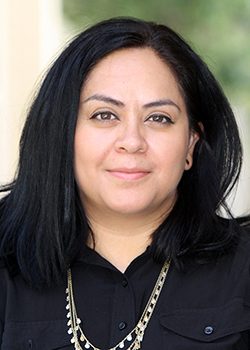
Rocío Rosales
Associate Professor, Sociology
For Angelenos traveling along Venice Boulevard, Santee Alley and other iconic city routes, street vendors pushing carts of delicious food and unique wares are a staple in the city’s informal, hustle economy that supports many undocumented workers. As a graduate student at UCLA, Rocío Rosales would frequent the rainbow umbrella carts where she’d enjoy fruit salad and casual conversation with the vendors about daily life. She became intrigued with their stories of hope and heartache as she came to understand the complex structure of their paisano social networks that both helped and hindered their new lives in the U.S.
Now an associate professor of sociology at UCI, she’s detailed their stories in Fruteros: Street Vending, Illegality, and Ethnic Community in Los Angeles where she examines the hometown links that can be lifelines for entry to the U.S. as well as exploitive networks for an already marginalized population. The work was named among this year’s American Sociological Association Distinguished Book Award winners from the Latinx Sociology Section.
Many immigrants settle in large cities across the United States and some, especially
those who are undocumented, find their first jobs in the informal sector of these
urban centers. Most of us have a vague understanding of immigrants in cities, but
we don’t always understand what a vital role they play in city life,
she says. From within the informal sector, they create so much industry, generate so much income
and not only for themselves but for many others. Any serious study of city life and
urban space must take into account the role that immigrants play in creating that
life and space.
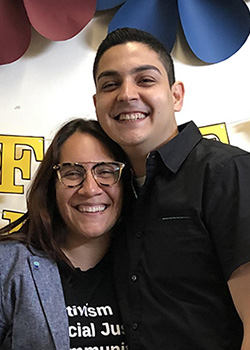
Josue Ruedas
Undergraduate Student, Political Science and Chicano/Latino Studies
For UCI political science and Chicano/Latino Studies major Josue Ruedas, childhood
experiences with law and institutional racism shaped his trajectory as an Anteater
advocate for change. Political science is fantastic for addressing institutional systems. Chicano/Latino
studies helps remind me of historical inequities and that my experiences aren’t isolated,
but are part of a greater phenomenon,
he says.
The classes he's enjoyed most are the ones that have focused on the intersection of race, gender, law, and politics. He’s found that instead of his questions being rebuffed, like they were in high school, they’re encouraged. Ruedas describes his first critical race theory class with delight.
Given my past experiences with law and institutional racism, I came to find out that
the field I was really interested in, what I’ve been looking for my whole upbringing,
is the field of critical race theory. My first politics of protests class with professor
Claire Kim in the School of Social Sciences was reaffirming and empowering to an indescribable
degree,
he says.
After that class, Ruedas became a member of the Latinx Resource Center Advisory Committee and a discussion leader for the Freshman Edge/ Summer Bridge programs, where he talked about academic success and navigating university life for first-generation students of color. He was also selected by the Associated Students at UCI (ASUCI) to lobby in Sacramento and Washington, D.C. for the University of California Hill Day and the University of California Student Association, Student Lobbying Conference. He advocated for the expansion of mental health services, for financial aid for undocumented students, and for the extension of the Pell Grant.
Ruedas’ internship with UCI’s Cross-Cultural Center proved to be another formative experience. One of his duties at "The Cross" was putting together weekly discussion groups for students on topics ranging from the militarization of the U.S. border to healthcare access.
When he graduates, Ruedas plans to apply to law school. And as he gets ready for his next chapter, he knows education will continue to be a critical component along his path for justice and empowerment.
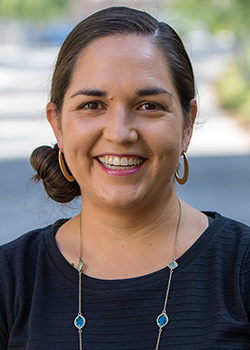
Laura Enriquez
Associate Professor, Chicano/Latino Studies
UCIChicano/Latino studies associate professor Laura Enriquez is working hard to illuminate how undocumented immigration status shapes the opportunities and relationships of young adults. She’s explored the topic from multiple angles, including education, family, relationships and health. Her award-winning book, Of Love and Papers: How Immigration Policy Affects Romance and Family, details how family life and romantic relationships are complicated and compromised by documentation status. Other award-winning studies have taken a hard look at how immigration laws create multigenerational punishment as the challenges of undocumented status are shared with citizen family members in mixed-status families. For the past two years, she's led the 18-campus UC PromISE comprehensive study to understand and document the extent to which undocumented status disrupts students’ education and wellbeing across California's state universities, and how individual student actions, campus resources, and institutional context may help reduce inequalities. The findings, Enriquez says, paint a complex picture of a largely first-generation student population—a vast majority of whom migrated from Latin America—compromised by immigration status.
Academic performance conceals the struggles these students face on a daily basis,
she says, pointing to the rate of students who reported being distracted in class
or losing study hours—76 percent and 64 percent, respectively—because they were dealing
with or thinking about an issue related to their immigration status. Roughly half
reported weekly concerns about parental/guardian deportation, and more than a third
thought as frequently about their own possible deportation. Her work earned her the
2020 UCI Academic Senate Early-Career Faculty Award for Research, spotlighting the young scholar’s outstanding disciplinary contributions, which colleagues
describe as both groundbreaking and policy relevant.
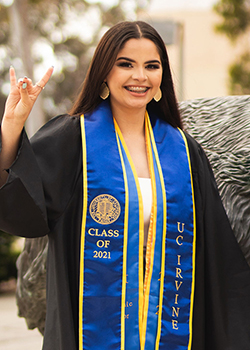
Katia Necoechea Madriz
’21 psychology and education science
Katia Necoechea Madriz's C.V. reads like a laundry list of accomplishments, extra-curricular involvements, and scholarships. The '21 psychology and education science alumna served as a UC Irvine Peer Academic Advising Program coordinator. She was a discussion leader for the Summer Bridge Program, a teaching assistant for bilingual education, and she helped teach high school students in the Upward Bound program. She interned in various capacities for the Student Alumni Association, was a notetaker for UCI’s Disability Center, and a SAGE Scholar, just to highlight a few of her activities. In spring, she was named a Fulbright Scholar and is currently in the middle of a nine-month stint teaching high school students in Madrid. But her own academic successes come second to her real passion, and what she hopes to do once she returns from Spain: foster others' academic accomplishments as an elementary school principal.
The mentorship I received is why I'm so passionate about bringing that support to
other students,
she says. It changed the trajectory of my education, career opportunities, and life in the best
way. I want to have that impact on others too.
School was a challenge for her in her youth, due completely to circumstances out of
her control. Her mother worked days and nights as a cleaner to make ends meet for
Katia and her sister, but there were still moments of instability that led to the
family having to stay in shelters and move around often. Katia attended six different
elementary schools while learning English as a second language. In spite of the difficulties,
she persevered and was a star student. Later on as a high-school student and prospective
first-gen college student, she relied on organizations like Chula Vista Promise Neighborhood,
a local mentorship program, to provide her the advice, resources, and confidence to
pursue college and financial aid to make it possible. The power of mentorship provided by CVPN, my teachers, and counselors was crucial
in me pursuing my dream to attend college,
she says. They showed me the opportunities that were out there, and helped me believe that I
was deserving of these scholarships that made it possible for me to afford college.
Katia made it a priority to return the gift of mentorship, even as she worked through a full university schedule. She volunteered to deliver her own workshops on college applications and financial aid through Upward Bound, and even provided support to local high school students in her hometown of Chula Vista. She says that, ultimately, it’s her goal to provide the same confidence she was given, and make other students feel connected, worthy, and supported.
And that’s why her sights are set on a career as a principal - so she can enact programs and school cultures that encourage and support students from all backgrounds. She hopes that her time teaching in Spain will give her experience with high school students and provide some new perspective on how education is approached in other cultures so she can bring new ideas and a fresh perspective to her future school.
Latinx Heritage Month for me means a time during the year dedicated to uplifting the
voices of those before us who impacted our communities today,
she says. The month of September is dedicated to not forgetting those we continue celebrating;
Latinx history and culture should be appreciated and celebrated beyond a month, it
should be part of our history conversations and spaces 365 days a year.
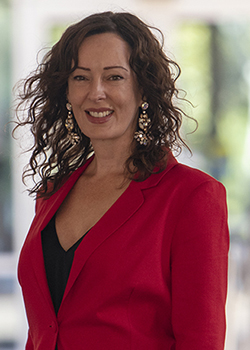
Anita Casavantes Bradford
Associate Dean, Social Sciences Faculty Development and Diversity & Associate Professor,
Chicano/Latino Studies and History
Educator, researcher and mentor. For Anita Casavantes Bradford, the roles are inseparable, each serving as fuel for the others. The first in her low-income family to go to college, she experienced early on the lifechanging power of having academic advocates in her corner. Now, as a professor of Chicano/Latino studies and history at UCI, she’s paying it forward to make sure students like her have the opportunity to thrive.
Casavantes Bradford is a historian of immigration, critical refugee studies and childhood, and the author of the books The Revolution is for the Children: The Politics of Childhood in Havana and Miami, 1959-1962 (2014) and Suffer the Little Children: Child Migration and the Geopolitics of Compassion in the United States (2022). The recipient of multiple teaching awards, her classes introduce UCI students to comparative and transnational Latinx histories, the history of immigration, race and ethnicity, the history of childhood, and critical refugee studies. She is perhaps best known, however, for her advocacy for students, a passion that earned her the 2019-20 Academic Senate Distinguished Faculty Award for Mentorship. This honor punctuates the countless hours she’s dedicated to helping first-generation, low income, underrepresented minority and undocumented Anteaters through programs like the First-Generation Faculty Initiative and the First-Generation First Quarter Challenge.
I want our first-gen students to recognize how their experience has shaped their ideas
of education and how that can motivate, rather than limit, their aspirations,
she says, reflecting on an experience with which she’s intimately familiar.
She’s also deepening her engagement with another UCI student community she’s long been interested in supporting: veterans. Drawing on her firsthand knowledge as the daughter and spouse of military veterans from very different eras, she created the curriculum for UCI’s first course on veterans in history and society. In 2019, alongside social sciences dean Bill Maurer, she helped launch a three-course veterans studies certificate program open to undergraduates—veterans or not.
Too often, veterans are portrayed as either heroes or damaged, she says. Drawing upon critical insights from disciplines like Chicano/Latino studies and gender
& sexuality studies, our curriculum critically and compassionately explores the complexity
of diverse veterans’ experiences, past and present.
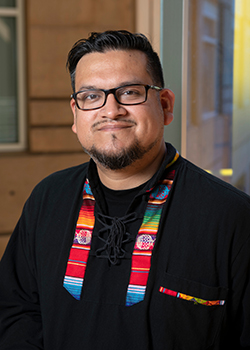
Orlando Lara
Graduate Student, Anthropology
Heritage months always bring conflicting feelings for me. On the one hand, they create
an opportunity to celebrate the various communities, but they also remind us of how
far we are from truly valuing and equitably treating these communities the rest of
the year, even during the celebrated months,
says Orlando Lara, UCI anthropology graduate student. I'm thinking here about the treatment of Haitian migrants on the border, for example,
or even my friend's U-visa case, which has recently come to my attention. The U-Visa
represents a 'pathway to citizenship' for her but is being stalled by an incorrect
interpretation of the law by local law enforcement. In recent years, even legal pathways
to entry (political asylum) or citizenship (U-visas) have been blocked or restricted.
Before Lara came to UCI to earn a Ph.D., he had dedicated years to grassroots community organizing, been a faculty member at a community college, served as the inaugural associate director of the first ethnic studies department in Texas, and helped establish a traveling multimedia art installation (now in its sixth year). Lara began his journey at Stanford University, from which he graduated with a bachelor’s degree in Chicana/o studies; he then got a master’s in anthropology at New York University and an M.F.A. in fiction at Cornell University.
His academic career has shaped his identity as a teacher, activist and artist. And now, as a doctoral student at UCI, he is refining his role as a scholar.
Lara uses his skills in art, creative writing, ethnography and community organizing to advocate for immigrant rights. He has been focused on the experiences of undocumented people since he was an undergraduate exploring the intersection of ethnic studies and anthropology. When he was at Stanford, he had read Shadowed Lives: Undocumented Immigrants in American Society, by Leo Chavez, UCI anthropology professor and Lara’s current adviser. It was one of the first in-depth analyses of the undocumented population in the U.S., and it resonated on a personal level.
Lara belongs to a mixed-status family. Although he grew up in Texas, his parents were undocumented for much of the 1980s, until the Immigration Reform and Control Act of 1986 – the last amnesty law to provide a path to citizenship for a large swath of immigrants. However, other branches of his family who arrived in the U.S. later weren’t so lucky. The disparities in privilege were shocking to him, even as a toddler.
My interest in immigration started from my first memory, honestly,
Lara says. I realized that legal status was an issue, that it created bizarre distinctions between
family members that were not – in my mind – rational. I thought, ‘Why do I have all
these rights that my cousins don’t have when I don’t deserve them any more than they
do?’
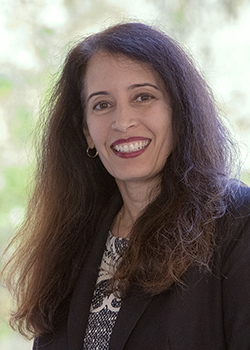
Jeanett Castellanos
Associate Dean, Social Sciences Undergraduate Studies, and Teaching Professor, Social
Sciences
Her list of “kids”—more than 215 Anteaters long—reads like a Who’s Who at the nation’s
top graduate schools, from Harvard University to The Ohio State University to UC Berkeley,
to name a few. They’re also in high level posts at esteemed institutions throughout
the U.S. as professors, psychologists and administrators. For Jeanett Castellanos,
or Dr. C
as she’s commonly known around campus, these former students aren’t just people who
passed through her classes. They and her current charges are her mentees, her academic
family, her kids—and a majority are first generation, underrepresented college students.
From the time they enter UCI until they leave, she commits years of her time to developing
them as young professionals vested in their communities. And when they leave, they
take with them an edict from the social sciences professor of teaching and associate
dean of undergraduate studies: Pay it forward.
Good mentorship fosters purpose, public service, and social change. My mentees are
taught the importance of community and social responsibility - the role of giving
back,
she says. I connect the degree to their role in the community and consequently the degree is
viewed with greater value. Specifically, it is not simply a diploma that will guarantee
extra money and social mobility (which are important) but a degree that leads to a
meaningful career path that will facilitate social change and a valuable social contribution
to society.
It’s a lesson she learned more than 25 years ago from her own mentor, Joseph White, UCI psychology professor emeritus, and it’s one she’s been putting into practice ever since.
Castellanos grew up in southeast Los Angeles. The only child of Cuban refugees, she was raised to value education, something neither of her parents had a chance to pursue. She graduated from UCI with majors—and honors—in psychology and sociology. She went on to earn her master’s in education with a focus on counseling psychology, and her doctorate in education with a focus on higher education and student affairs. Her approach and attitude about the importance of mentorship come through in her research. Her nationally recognized work merges the fields of counseling and higher education with a particular focus on Latina/os. She has published widely on the topics including two books entitled: The Minority in the Majority: Expanding the Representation of Latina/o Faculty, Administrators and Students in Higher Education and The Latina/o Pathway to the Ph.D.: Abriendo Caminos.
Over the course of her 20+ year career as a leader on the Irvine campus, she’s racked up 5 awards highlighting her service beyond the classroom, including UCI’s 2016-17 Academic Senate Distinguished Faculty Award for Mentorship and the 2020 Society for Psychological Study of Culture, Ethnicity and Race Distinguished Career in Service Award. The honor from the American Psychological Association Division 45 recognizes the outstanding UCI mentor for her continued dedicated service to communities of color through research, mentorship and work in the field of psychology and higher education.
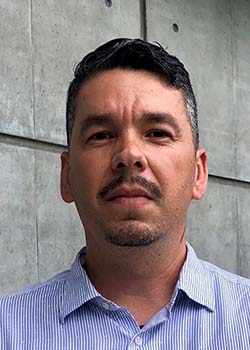
Salvador Zárate
Assistant Professor, Anthropology
As officials seek out new solutions to intensifying wildfires around the world, Salvador Zárate, anthropology assistant professor, urges consultation with an unlikely source: weed abatement workers. His research aims to elevate the stories and experiences of these critical front-line workers who play an increasingly important role in improving fire prevention policy.
I grew up working in Orange County’s canyons and foothills alongside my late father,
Juan Zárate, and his crew of Latino migrant weed abatement workers. The Santa Ana
winds organized the economic and social life of my family for over three decades.
Now the winds and chaparral organize my research. As an anthropologist at the University
of California, Irvine, I’m collecting ethnographic data to inform the future of county
wildfire policy by talking with county officials, homeowners, independent weed abatement
crews, and those that work for the Orange County Weed Abatement Program (OCWAP), the
very program for which I worked every spring growing up and until my early 30s.
In fire-prone areas in densely forested parts of the western United States, authorities
and landowners can sometimes rely on other methods, such as prescribed burns, to lessen
the threat of wildfires. But in Orange County and other coastal parts of Southern
California, these methods don’t always work.
The expansion of WUI private development in the region since the 1980s has meant
that manual weed abatement efforts have become increasingly important, particularly
because of the abundance of low-to-the-ground oily shrubs and grasses in this populated
area. Only workers can maneuver deep in the canyons and close to property lines to
eliminate fire threat. For about four weeks in the spring, these small weed abatement
crews scale the hills, canyons, and slopes of Orange County, jumping from one overgrown
parcel of property to the next. They expertly thin out the biological fuel, both the
non-native and highly flammable buckwheat, pampas, and mustard grasses, and the dried
growth of the native chaparral biome.
Why, some readers might be wondering, have they never heard of weed abatement
crews? In sharp contrast to the familiar images of firefighters and aerial displays
of water and Phos-Chek fire retardant being dumped onto the hills just feet away from
canyon estates, weed abatement workers’ labor happens months before the broader society
is reminded, viscerally, of Southern California’s flammable geography.
To appreciate the work of migrant workers as first first responders, we must
attune our attention not to the fire season, a term that has entered into the mainstream,
but to this earlier weed abatement season. That means recognizing the fact that life
in the canyons means living intimately with fire year-round for the foreseeable future.
It also means reckoning with the unequal distribution of risk: In Orange County,
while the most affluent communities tend to be the ones nestled in the WUI and at
most risk of fire, they depend heavily on the ecological and technological knowledge
of predominantly working poor Latino migrant weed abatement workers to keep them safe.
As these risks grow with the impacts of climate change, so do the social and economic
disparities between the communities who are protected and those who do the protecting.
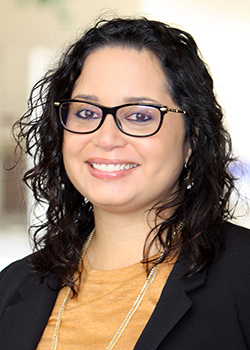
Alana LeBrón
Assistant Professor, Chicano/Latino Studies and Public Health
Alana LeBrón, Chicano/Latino studies and public health assistant professor, is working to illuminate the processes that shape social inequalities, its implications for inequities in health, and opportunities for intervention.
Her research has found that racial discrimination can have serious health consequences. A study she co-authored that appears in the journal Ethnicity & Health found that more self-reported incidents among Black and Latinx adults corresponded to higher blood pressure levels, putting these populations at greater risk for cardiovascular disease. In another study, published online with Public Administration Review, she and coauthors found a decline in overall trust in the government as a source of health information for Latinxs who live in counties with high levels of immigrant policing.
Another study, published in the online journal Obstetrics & Gynecology, found that Black, Latina, and American Indian or Alaska Native women had lower odds of receiving adherent treatment for endometrial cancer.
She also has two forthcoming studies in the Journal of Health Politics, Policy and Law. The first, based on interviews with Mexican-origin women, highlights the important ways that Mexican communities find agency in responding to multiple restrictive immigration policies and treatment and ways to affirm, protect, and resist their racial identities, which are often stigmatized. In the second, a conceptual piece, LeBrón and a colleague highlight the connection between police violence against Black communities and the COVID-19 pandemic as dual public health crises linked with structural racism. The outline a research agenda that can strengthen understanding about racism and health inequities.
If we are to improve the health of our society and eliminate health inequities, we
must invest in undoing and eliminating racism, nativism, classism – all of the ‘isms,’
she says.
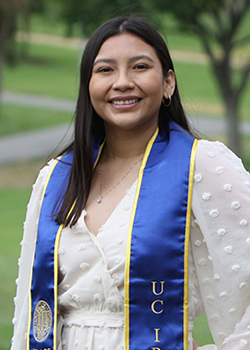
Bethany Urbano
'21 Political Science and Education Science
Tu puedes hacer todo lo que tu te propongas. (You can do whatever you set your mind to.)
Bethany Urbano and her sister heard these words often while growing up in their Santa
Ana home. Their mother, who immigrated to the U.S. from Mexico before they were born,
didn’t have an opportunity to continue school beyond first grade. Her mom’s experience
gave Bethany a very personal understanding of the connection between poverty and literacy,
and served as a driving force in her decision to pursue an education. With her mom
and a few key mentors in her corner, Bethany blazed a new path as a first-generation
Anteater at UCI—an experience she packed with as many opportunities as she could.
In June, she was one of only two social sciences undergrads who got to address the
2021 graduating class. While the ceremony was remote, the sense of accomplishment
and sacrifice it took her to get to there was every bit real, and something Urbano
celebrated with her family proudly at her side and her team of mentors cheering from
afar.
While Urbano considers herself extremely fortunate to be have earned a college degree, she acknowledges the path hasn’t been easy. With that in mind, she made a point throughout her time on campus to uplift the voices and experiences of low-income and racial ethnic minority students through formal research, first via the School of Social Sciences Summer Academic Enrichment Program and then as an honors student. Her senior honors thesis—advised by faculty mentors Jeanett Castellanos and Caesar Sereseres—examined organizational barriers that limit low-income students from participating in internships. Widely considered as gateway opportunities for future careers, Urbano’s research found that many internships are completed without pay and therefore limit the ability of low-income students to participate.
The decision to accept an unpaid internship is difficult for low-income students who
are unable to financially support themselves throughout an extensive period of time
or pay out of pocket expenses. This issue makes unpaid internships a serious and pressing
problem for social mobility,
she says. Specifically, for low-income students, unpaid internships can become barriers that
limit both obtaining a decent occupation after college and climbing the socio-economic
ladder.
She hopes that by illuminating this critical gap, more employers and universities
will work to close it through funded opportunities.
In her final year at UCI, Urbano was named the recipient of a $7,000 Barnes and Noble Scholarship to support international literacy. Her on-going project is a very personal one that connects her research with action in her mom’s hometown in Michoacán, Mexico. Urbano is using the funds to set up a library in an empty room of the community school where students can check out books, have access to needed supplies and pursue enrichment opportunities in an afterschool program. She's now planning to pursue a career in corporate social responsibility after completing her master's so she can help guide philanthropic money to this cause.
I’m passionate about helping countries become more sustainable through development
of better education systems because I know how much it’s has changed my life and the
opportunities it’s now opened for my whole family,
she says. Education is the key to a better future.
Read more about Bethany’s UCI experience and the powerful role mentors played in her path:
PROGRAMS
Learn more about social sciences research, degree, student and mentorship programs designed to advance academic achievement, create cultural competency and cultivate community on campus.
UC Cuba Academic Initiative
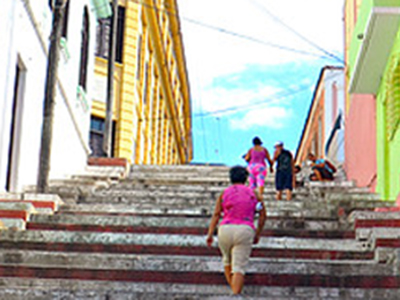 In 2006, professors from nine University of California campuses came together to create
the UC-CUBA Multi-Campus Academic Initiative. Headquartered at UC Irvine, UC-Cuba
has grown since then into a diverse and thriving international network of university
faculty, graduate students, and independent scholars, united by their shared passion
for all things Cuban.
In 2006, professors from nine University of California campuses came together to create
the UC-CUBA Multi-Campus Academic Initiative. Headquartered at UC Irvine, UC-Cuba
has grown since then into a diverse and thriving international network of university
faculty, graduate students, and independent scholars, united by their shared passion
for all things Cuban.
“When we founded UC-CUBA, I never anticipated it would provide a home for scholars studying everything from botany to Celia Cruz," says Raul Fernandez, UC-Cuba founding director and Chicano/Latino studies professor emeritus. "Our workshops, bringing graduate students from many disciplines in dialogue, created a vibrant, supportive and productive scholarly community. I truly believe UC-CUBA members are transforming Cuban studies in the United States.”
Together, UC-Cuba scholars work to foster innovative, multidisciplinary research on a broad range of Cuba-related topics, seeking in the process to bridge the multiple divides—disciplinary, territorial, ideological—that prevent seeing and appreciating la isla in all its beauty and complexity.
In the fifteen years since its founding - and as the only such program in the United States - UC-CUBA has organized ten multi-campus conferences and workshops. It has also awarded more than seventy research and travel grants to doctoral students in fourteen different disciplines from eight UC campuses. In collaboration with partners on the island, which include leading national institutions such as la Casa de las Américas, Instituto de Estudios Martianos, Instituto de Historia de Cuba, Instituto de Ciencias y Tecnologías, ICAIC and UNEAC, Revista Temas, and the Biblioteca Nacional José Martí, UC-Cuba has also provided logistical support to faculty and graduate students from the UC system and beyond to do research in Cuba. In 2017 and 2018, UC-Cuba hosted distinguished Cuban physicist Jesús Rubayo and Nobel-prize nominated author Leonardo Padura as the first Cuban scholars and artists-in-residence within the UC system since the 1950s.
NSF Build and Broaden Research
 A multicampus grant writing training program and a STEM-focused partnership to study
brain responses in decision making—both aimed at elevating minority faculty and student
research—are two new University of California, Irvine initiatives to receive National
Science Foundation Build and Broaden Program funding. The program supports research,
training opportunities and research infrastructure building activities at minority-serving
institutions.
A multicampus grant writing training program and a STEM-focused partnership to study
brain responses in decision making—both aimed at elevating minority faculty and student
research—are two new University of California, Irvine initiatives to receive National
Science Foundation Build and Broaden Program funding. The program supports research,
training opportunities and research infrastructure building activities at minority-serving
institutions.
These grants reflect how UCI is at the forefront of propelling social and behavioral
science through an intentional strategy of growing inclusion and diversity,
says Bill Maurer, social sciences dean. We truly are leading the way.
Since 2017, UCI has been designated as both a federally recognized Hispanic-Serving
Institution (HSI) and Asian American and Native American Pacific Islander-Serving
Institution (AANAPISI) with campus enrollments of at least one-quarter Latinx, and
at least 10 percent Asian American and Native American Pacific Islander, students,
respectively.
-
California Alliance for Hispanic-Serving Social Science Advancement (CAHSSA)
The first program, led by Holly Hapke, Ph.D., UCI social sciences research development director, aims to identify and address barriers to grant proposal development and submissions by roughly 4,500 social sciences faculty across 28 minority-serving public universities in California.
Social science participation in extramurally funded research is historically low at minority-serving institutions,
says Hapke.A number of factors discourage faculty at MSIs from developing robust extramural funding portfolios. Apart from individual-level barriers related to confidence and skill, lack of institutional infrastructure and support, incongruent tenure and promotion expectations, and potential biases in the review process stand out.
With a $796,858 grant from NSF - $203,155 directly to UCI - Hapke and project leads at UC Santa Barbara, California State University Channel Islands (CSUCI), and the Chancellor’s Office of the California State University are working to remove these obstacles and expand research opportunities. They’ve established the California Alliance for Hispanic-Serving Social Science Advancement (CAHSSA) through which they’ll implement and evaluate grant proposal writing webinars, writing groups, and writing retreats; lead train-the-trainer workshops and social science leader seminars; and conduct content analysis of proposal reviews to analyze how social science research is constructed and practiced across institutional types.
Our comparative analysis of NSF reviewer comments on social science proposals from faculty at HSIs and non-HSIs may also help uncover and eliminate biases that may exist,
says Hapke, the result of which would help open up more opportunities forinnovative and collaborative Hispanic-serving social science research projects and proposals.
Their efforts will reach more than 4,500 social scientists across the Cal States and UCs.
-
Enhancing STEM Opportunities for Underserved Students
Cognitive scientists Ramesh Srinivasan and Jeffrey Rouder are leveraging their STEM-focused research expertise through the second NSF-funded project, a collaboration with California State University San Bernadino-Palm Desert Campus (PDC) where more than 80 percent of students identify as Latinx.
The professors from UCI’s Department of Cognitive Sciences—ranked among the nation’s top programs for cognitive neuroscience—specialize in using EEG and models of behavior to understand brain functions involved in human perception and decision making.
With a $650,469 grant - $356,875 to UCI - they’re working together with Pablo Gomez, psychology associate professor at PDC, to enhance STEM opportunities for underserved students at PDC.
Planned work includes developing new science content for PDC courses; launching “NeuroScienceFest” one-day activities at PDC; developing a novel three-week summer school at UCI for PDC students in STEM skills (experimental design, math skills, computer programming, data analytics); internships for PDC students at UCI; and opportunities for students to work in PDC research labs with bimonthly support from UCI graduate students and faculty on experimental technologies and methods used to study perceptual decision-making.
The short-term goal is to provide an opportunity for PDC students to gain STEM skills by contributing to active state-of-the art research in cognitive neuroscience,
says Srinivasan.One longer-term goal is to help them discover new future research opportunities and directions at R1 universities like UCI and develop career goals in STEM fields.
The other long-term goal of the project is to develop the research training capability in cognitive neuroscience at PDC with a unique focus on tactile perception.
The partnership also provides opportunities for UCI graduate students to develop teaching skills for students who were exposed to varying STEM opportunities in primary school.
says Rouder.Visit the Enhance STEM Opportunities for Underserved Students at PDC site
First-Generation, First Quarter Program (FGFQ)
The FGFQ program offers opportunities for social sciences students to succeed in their first year at the university. FGFQ serves students who were the first in their family to attend college. The program was developed by social sciences students, staff, and faculty who were also the first in their family to attend college. They know firsthand what it takes to succeed at UCI and are eager to offer their support, guidance and friendship to other first-generation students as they settle into the university.
Summer Academic Enrichment Program (SAEP)
The Summer Academic Enrichment Program (SAEP) is an intensive, five-week on-campus program. It is designed to enhance the academic experience of first-generation college students. There is no out of pocket expense to participants for this program. All costs are covered by financial aid and program funding. SAEP is a landmark program on the University of California, Irvine campus and represents a successful model that offers a rigorous research experience. Participants receive 8 units of academic credit towards graduation.
Department of Chicano/Latino Studies Degree Programs – bachelors, graduate emphasis and PRIME-LC seminars
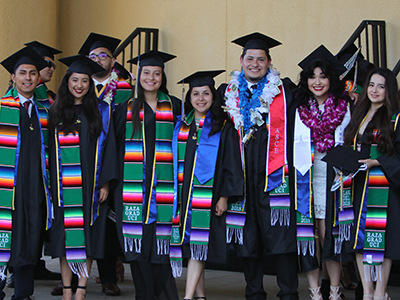 The Department of Chicano/Latino Studies at UC Irvine provides undergraduate and graduate
students with the opportunity to examine and gain a deep understanding of the historical
and contemporary experiences of Americans of Latina/o/x origin or ancestry from a
variety of scholarly perspectives (i.e., history, literature, political science, psychology,
public health, sociology). Curriculum is designed to provide an awareness, knowledge,
and appreciation of the language, history, culture, literature, and creative (art,
dance, drama, film, music) accomplishments of Chicano/Latino communities.
The Department of Chicano/Latino Studies at UC Irvine provides undergraduate and graduate
students with the opportunity to examine and gain a deep understanding of the historical
and contemporary experiences of Americans of Latina/o/x origin or ancestry from a
variety of scholarly perspectives (i.e., history, literature, political science, psychology,
public health, sociology). Curriculum is designed to provide an awareness, knowledge,
and appreciation of the language, history, culture, literature, and creative (art,
dance, drama, film, music) accomplishments of Chicano/Latino communities.
The department is proud to offer undergraduates a bachelor’s in Chicano/Latino studies, an undergraduate minor, and a certificate program, and the graduate programs which consist of a graduate emphasis https://www.chicanolatinostudies.uci.edu/grad/emphasis.php (that can be earned alongside any Ph.D. program at UCI), UC-CUBA (to promote scholarly study of Cuba by scholars in the United States) and PRIME-LC https://www.chicanolatinostudies.uci.edu/grad/overview.php (to provide training for medical students in treating Latina/o/x patients).
Social Sciences Academic Resource Center
The Social Sciences Academic Resource Center (SSARC) was created in 1992 to assist undergraduate students of the School of Social Sciences to obtain a competitive edge for their post-baccalaureate goals. Grounded in giving students opportunities, defining work ethic, and teaching professionalism, our Center has evolved into a one-stop location to address an entire range of student achievement and academic success, including graduate school admissions, career preparation, internship placement, scholarly promotion, and community.
Latinx Student Psychological Association
LSPA emphasizes the value of academics, research, practical experience, leadership and community service for a complete undergraduate experience. In addition, the association’s cabinet recognizes the value of the five elements for the successful application of graduate school. Through programming, dialogues, workshops and other educational activities, LSPA aspires to assist students to acquire a comprehensive education.
Deconstructing Diversity Initiative
The Deconstructing Diversity Initiative consists of a 4 unit, three-quarter series course (total of 12 units) as a seminar-style introduction to issues of race that are central to American society. This program combines rigorous classroom instruction on issues of race and race relations with travel to sites of historical and contemporary importance to the experience of race in America. The fall quarter focuses primarily on providing students with theoretical frameworks for understanding the impact of race on the American experience, paying particular attention to the experiences of African Americans, Asian Americans, and Latinos. Fall quarter topics include psychological approaches to racial identity formation and structural approaches to race such as critical race theory; differential racialization; intersectionality; anti-blackness; and white privilege. The winter quarter provides a chance to further explore critical issues that are impacted by race and race relations in America, such as race and education; the Asian American Achievement Paradox; immigration, labor, and race; allyship and the politics of solidarity; anti-blackness and the queer rights movement; art and racial resilience; and multicultural/diversity initiatives.
During spring break, students travel to Chicago, Washington D.C., Atlanta, Montgomery, and New Orleans to visit sites of historical importance to race in America. Then, during spring quarter, students focus on local initiatives and begin to develop their own initiatives to educate and impact the local community.
Throughout in-class instruction and experiential learning trips, students investigate institutional and contextual forces, power differences, real or imagined, that are at the heart of racial/ethnic tensions and should be considered in developing and implementing strategies for improving race relations. These include structures and practices, mores, traditions, beliefs, and stereotypes. Students then go on to serve as mentors in the Diversity, Inclusion and Racial Healing Ambassador Program.
Diversity, Inclusion and Racial Healing Ambassador Program
Diversity, Inclusion, & Racial Healing Ambassador Program (DIRHA) is a high school program that aims to foster empathy, promote cultural humility, and reduce stereotyping among youth. Students involved with DIHRA attend UCI faculty-and staff-led seminars focused on making complicated topics—such as race, gender, and religion—digestible, thought provoking, and age-appropriate. The program equips participants with tools to navigate bias, identity, and hate while being inspired to celebrate diversity, with guidance from UCI faculty, staff, and undergraduate student mentors, as well as field trips. With more informed perspectives, DIRHA participants create and implement campus projects that seek to foster a climate of inclusivity and equity. The goal is to build empathy, cultural competency, and leadership skills among high school participants so that they can pass on their knowledge to their peers.
Cascading Mentorship
The School of Social Sciences believes that one of the keys to success and well-being in graduate school is cascading mentorship. Traditional models of graduate training seem to expect a student’s faculty advisor to provide all of the informational, social-emotional, and instrumental support that a student needs. (Think of Yoda and Luke Skywalker doing Jedi training in a swamp.) In the UCI Cascading Mentorship model, students are invited to join with a small group of peers and near-peers (i.e., more senior graduate students) for weekly meetings. (Think of penguins huddling in the Antarctic.) Groups work together on research planning, academic writing, presentation skills, and the art of staying sane and healthy in graduate school.


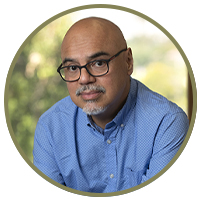
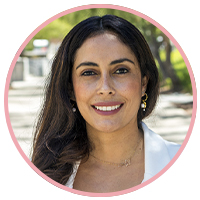
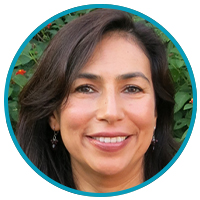
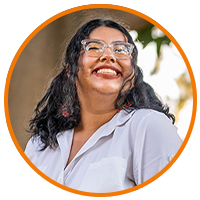
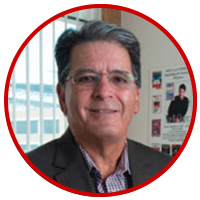
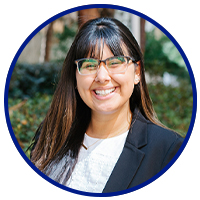
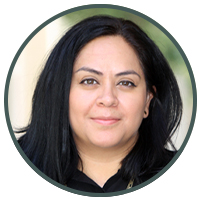
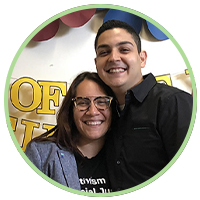
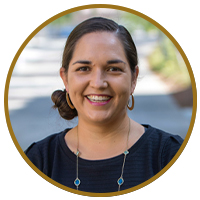
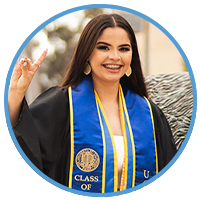
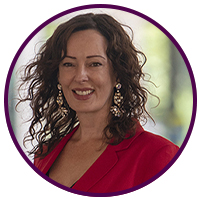
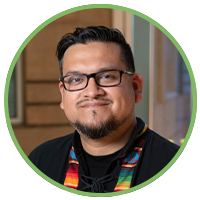

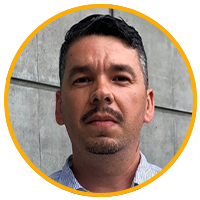
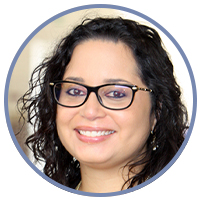
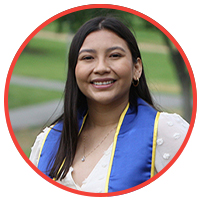
connect with us: